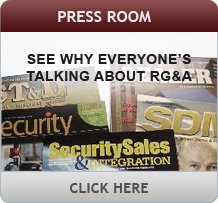Independent CCTV audits verify your cameras are working properly for your specific application, as well as recommend appropriate preventative maintenance. If done regularly, these reviews will ensure you make the most of your camera surveillance system.
One fear shared by many campus security professionals is that their electronic security system won’t work when they really need it. Recent headlines have shown the effectiveness of CCTV systems in catching terrorists, thieves and other criminals, but what about the fine print in so many other stories where the villain was simply “unrecognizable by the camera?”
Fortunately, this situation is preventable. Unfortunately, you’re probably not doing all you can to prevent it. Many organizations rely on audits to verify proper controls and procedures in their facilities. An inventory is a form of an audit, as is an accounting or compliance audit.
Many campuses now consider their CCTV system to be a critical part of their operation, so why not perform a regular review of that system as well? Given the advantages of such an audit, it’s surprising that this is not a more widespread — or even mandated — activity.
CCTV System Testing Is Subjective
It may be tempting to extend this concept to all electronic security systems in a facility. Certainly, the regular testing, adjustment and calibration of all of your systems is important. But it’s not likely these other systems will require a regular third-party audit for one simple reason — an alarm, intercom, access control or other related system does not have a subjective component. It is easy to define the perfect operation of these systems and ensure they live up to expectations.
CCTV, however, lends itself to more grey areas that benefit from another set of eyes and expertise to verify proper operation. Any audit worth its salt looks at two elements: 1) If the system is performing as mandated and 2) If improvement is needed, what can be done to improve performance.
Applying these concepts to our CCTV system audit, the System Audit Checklist table on this page shows a few examples of what should be examined, as well as typical opportunities for improvement in those areas.
What an Auditor Should Review
To sum it up, a campus needs to know three things:
System Functionality: This area can be broken down into the various subsystems, but the overall question is simple: Is everything working the way it should? Are images from cameras free of distortion and interference and sharply focused? Do pan/tilt/zoom (p/t/z) cameras move when told and, more importantly, stop moving on command as well? Are images recorded as needed, and can you play them back on demand (subject to the limitations of your system)?
While these may seem like common-sense questions, it is surprising how many operators learn to compensate for systems that have deteriorated through time. Sometimes an alternate camera is used, or an operator will wait until the subject gets closer to see if a suspect can be recognized.
Even common (and often easily fixed) electrical problems such as unstable images caused by poor equipment grounding can be ignored in much the same way a 12-year-old boy ignores the dirt on his eyeglasses. We tend to look through these problems, and a third-party audit will likely uncover issues that were well-known but long ignored.
System Performance: While system functionality evaluation determines whether or not the equipment is working, a system performance evaluation seeks to identify how well it is working, particularly for your specific application.
This type of evaluation will look beyond the quality of a camera image to determine the effectiveness of a camera in each particular location. Will adjustments, such as lens or equipment changes — or even repositioning — help increase usability and overall effectiveness?
Similarly, recording duration, frame rates and compression quality should be evaluated on digital video systems to see if you’re using the products effectively.
Preventative Maintenance: Along the way, an audit should identify elements of the system that may be prone to premature failure and make specific recommendations as to how they may be corrected.
Cable strain on connectors is very common, and a few well-placed cable ties or supporting bracketry can often be an inexpensive fix. If there were problems with the initial installation, or subsequent changes and modifications, recommendations here will give you the ammunition to ensure things are properly corrected.
Select an Independent Auditor
Perhaps the most difficult task in having a system audit performed is selecting the person to conduct the audit. There are a few criteria that must be observed to keep the process objective.
First and foremost, the auditor should have the skills and experience to perform the work. The systems we are talking about can be fairly complex, and you will need the person reviewing your system to know more about it than you do.
They should be in a position to recommend effective solutions and improvements and have experience with similar systems to bring to your application. Look for someone who is genuinely interested in improving your system, not just the paycheck, and insist they not be afraid to speak their mind.
Second, the auditor should have absolutely no financial stake in the outcome of the review. If they’re going to recommend a change, you want to be sure the change is needed and not a revenue-generating opportunity for their firm.
This is important even if you’re working with an excellent integrator who has a long history of collaboration and is looking out for your interests. If you are to use the results of this audit to justify investing in added equipment, you’ll be far better served bringing an independent evaluator’s opinion to the budget meeting rather than a quote from your integrator.
Unfortunately, the second criteria described above rules out most of the obvious choices, including integrators, your own employees and manufacturers. While there may be other options, the two that immediately come to mind are independent consultants and colleagues.
Using a colleague is an excellent choice, if you can find the right person, since the costs involved are minimal in most cases. This can be a trade-off relationship in which you’ll audit each other’s systems on a regular basis and, thus, derive equal benefit.
The challenge might be to find someone with sufficient expertise to perform a meaningful audit on your system and ensure that you know enough about their application to provide them with meaningful help as well. Still, when you consider the generic nature of video surveillance equipment and the number of systems that are likely within driving distance of your facility, with such a large pool to select from you should be able to find a few good candidates.
On the other hand, the right independent consultant fits all of the above criteria and can’t be accused of declaring a problem to generate more work or looking the other way to avoid hurting someone’s feelings. Their insurance will serve to provide some protection from liability, and they can be retained to perform the work on a recurring basis without you having to show up at their place to look at their system as well. They’re accustomed to writing effective reports on their findings and can check on any changes that you make as a result of their findings.
A CCTV Audit Can Be a Double-Edged Sword
The idea of a system audit may prove to be politically unpopular, and the louder the objections, the more likely it is needed. It will almost always uncover deficiencies in your system and will raise questions as to how things have been allowed to get this far.
If you’re confident in your operation and are prepared to implement reasonable changes that make business sense, it will be a welcome opportunity for improvement. However, if you believe the findings will be ignored and improvements will not be made, you may be better off skipping the process unless you’re prepared for the consequences.
Robert Grossman has more than 15 years’ experience in the security industry and is president of R. Grossman and Associates, a consulting group specializing in electronic security products and projects. He can be reached at (609) 926-9264 or rdgrossman@tech-answers.com.
For the complete version of this article, please refer to the January/February 2006 issue of Campus Safety Magazine.



